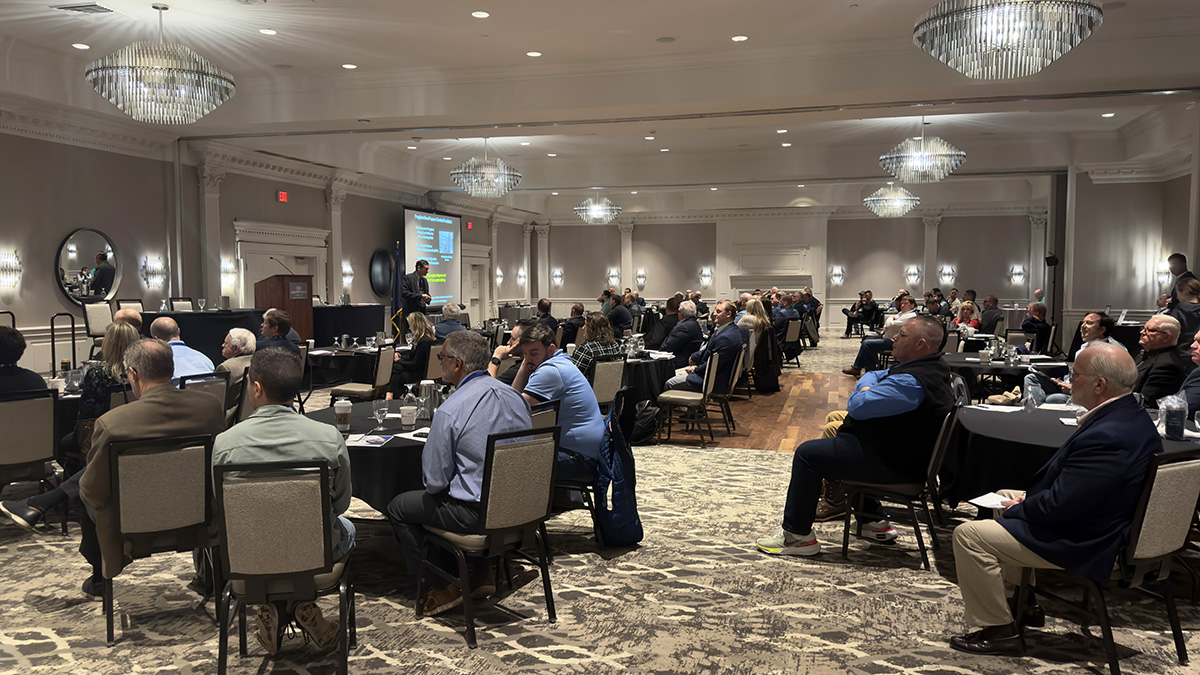NYPGA leaders address climate legislation at 2024 spring conference

More than 120 propane industry professionals attended the New York Propane Gas Association’s spring conference in Albany, New York. (Photo by Roger Rosenbaum/Brand-News-Team)
The lineup of speakers at the New York Propane Gas Association’s (NYPGA) spring meeting in Albany, New York, focused on the state’s hot button issue: the Climate Leadership and Community Protection Act (Climate Act). They also offered a variety of perspectives.
“I can say this is likely the best agenda of speakers to our industry that I have seen put together in an afternoon,” says Jeff Stewart, chairman of the National Propane Gas Association (NPGA) and the owner of California-based Blue Star Gas.
The Climate Act requires legally binding emission reduction standards to get the state off fossil fuels by 2050 and commit to 100 percent zero-emission electricity by 2040.
“Energy executives say in private that they are mortified and cannot support electrification,” Stewart says.
Questions were raised about the ability of aging power grids to handle a growing reliance on electric vehicles. The state has mandated that all new school buses have a zero-emission electric fleet by 2027 and that school districts shift their entire fleet from diesel to electric school buses by 2035.
Meanwhile, to combat the anti-propane sentiment in the state, the NYPGA is using direct mail, social media ads and the new Smarter NY Energy website to share industry facts and resources.
New York state Sen. Pete Harckham, chair of the state’s committee on environmental conservation, addressed more than 120 attendees at the event. He says there will be no bans on stoves, ovens or heating appliances – just incentives to phase them out.
Michael Hopsicker, vice chair of NPGA and CEO of Ray Murray Inc., assured the senator that propane marketers want to protect the environment but feel that electrification is not a cost-effective solution.
The NYPGA argues that the future cost to transition to electricity will be too much for residential and commercial customers and that propane must continue to play an important role as an environmentally friendly fuel.
“We are pushing back against commercial and residential furnace rules as well as commercial and residential water heater rules,” says NPGA President and CEO Steve Kaminski, who spoke at the conference.
Harckham says renewable propane and biofuels look appealing. Audience members expressed concern as the senator seemed to mix up elements of natural gas versus propane.
“Scientists thought natural gas and propane was the bridge fuel because it was cleaner than oil and coal,” he says. “But then they came to find the challenges with methane.”
Longtime NYPGA member Ray Murray III responded to the statement.
“Propane is not a greenhouse gas; methane is. We share all of their good qualities but not that bad one,” he says.
Christina Armentano, the new president of the NYPGA board who took over for Matt Meehan of Mirabito, expressed optimism about the fuel’s future and the impact the organization will have on the industry. She admitted the organization has work to do.
“It was a bit of a reality check for me how we are still having a challenge with our state senator to understand this fuel,” says the executive vice president and COO of Paraco Gas.
The Empire Center for Public Policy, a nonprofit government watchdog, also attended and questioned the state’s sweeping plans for electrification.
“Wind and solar are not cost-effective replacements for propane,” says Ken Girardin, director of research at the Empire Center. “You are going to need enough battery storage to power New York City and Long Island for days.”
The conference’s keynote address was given by Steve Goreham, author of “Green Energy Breakdown.”
“There really is another side to net zero,” he says. “This is going to force electricity prices higher; we are going to have electricity blackouts. I am forecasting that this is going to break down over the next few decades, and people are going to return to reliable, low-cost energy.”
Stewart refused to see propane’s future as doom and gloom.
“My goal is to get marketers to capitalize on the future, regardless of how it occurs,” he says.
















